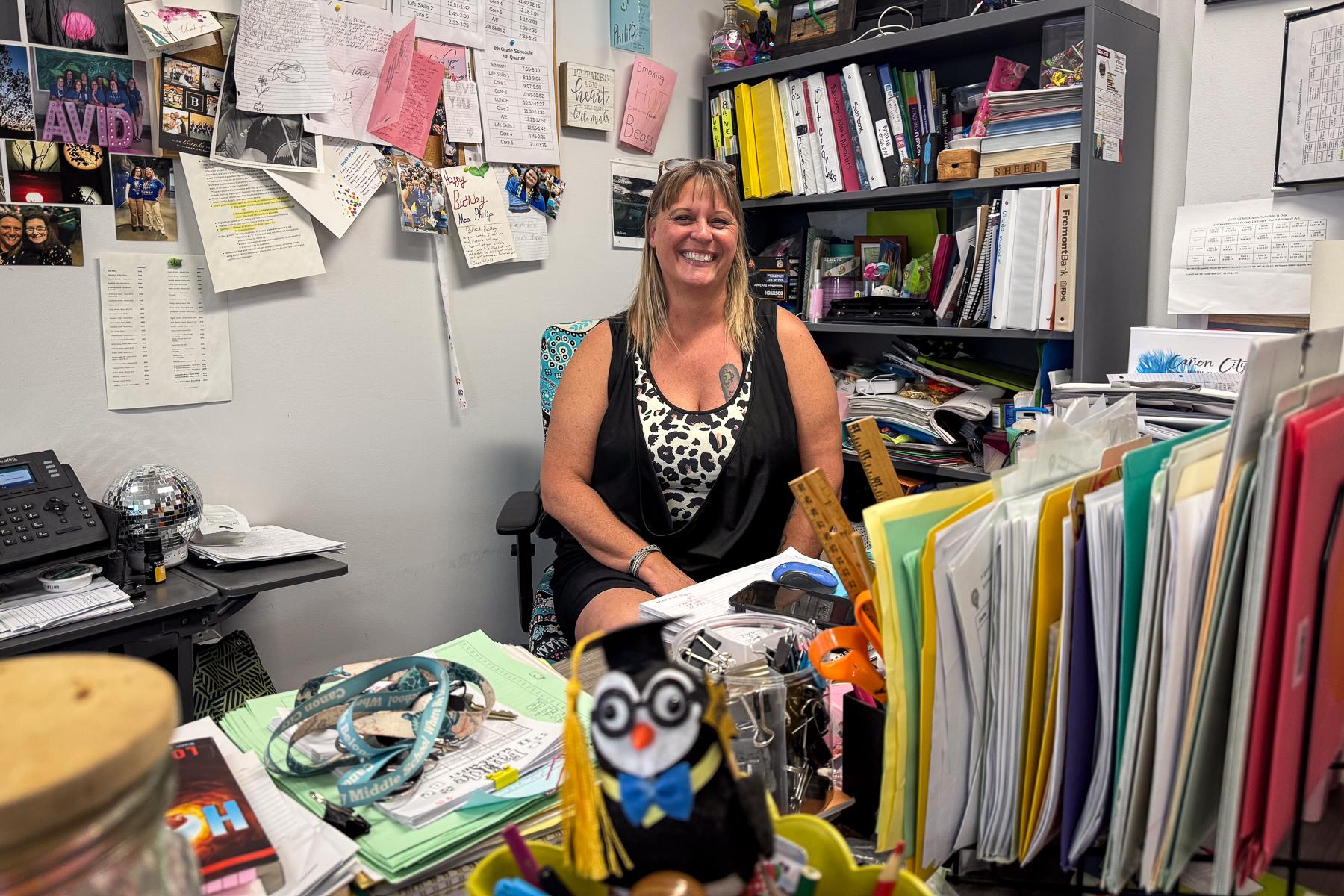
There’s no place quite like Julia Hubbel’s house. Her five bedrooms in Lakewood are chock full of things she’s picked up on her extensive world travels.
She clearly loves the stuff, and this home, but at 64, she’s single and living in a big house on her own. So she figured, why not sell?
After pouring $8,000 into sprucing the place up, she got an offer almost immediately. Her realtor urged her to take the deal, but she pushed back.
“You have sold the house, which was easy. You haven’t found me a house, which is hard,” Hubble said, recalling the conversation with her realtor. “So you’ve done one part of it. People walked in the door, you had a sale, boom! That’s easy. The hard part you haven’t done yet.”
She wanted to downsize, but could never find a place that was quite right. With little to choose from she eventually took the house off the market. That was three years ago.
Charles Roberts, a longtime Denver real estate broker — not Hubbel’s realtor — says there’s a critical lack of inventory. Agents have struggled with a shortage of listings for the last four years, he said, but things have gotten worse. “We’re at record low inventory per-capita in Metro Denver.”
It’s a kind of Catch-22. People aren’t putting their home on the market because they’re afraid they won’t find another place to buy. But there isn’t another place to buy because people aren’t selling.
“There is so much fear of being caught in this lack of inventory situation, that a lot of people aren’t moving,” Roberts said.
He also offered a way around this. If you’re a seller in a high-demand place you can negotiate to stay in your home longer while you find something. In a metro like Denver, sellers have all the leverage.

This is a national phenomenon, and it has changed the housing market. Daren Blomquist, with Attom Data Solutions, analyzed how long people are staying in their homes across the country and found that people are staying in their homes twice as long as before the recession.
“This is something we recently started looking at, and it really jumped off the Excel spreadsheet at us.”
In what Blomquist described as a paradigm shift for homeowners after the Great Recession, he found their stays jumped from four years on average, to about eight years on average.
Because so much equity was lost in the downturn, it made sense that people weren’t selling. But cities like Denver have seen tremendous price growth recently, and it’s surprising that more people aren’t selling to take advantage of that.
John Covert, an economist with Metrostudy in Denver, said people are actually taking advantage of their equity. Credit lines are up and home remodeling is at an all-time high in Denver and the U.S.
“So they’re remodeling their kitchens, they’re finishing their basements, they’re staying in their home, so they have more of a compelling reason to stay in their house today,” he said.
Covert does a census of all new home development in Denver, and home construction is still just 60 percent what it was at the building peak. “So the market is kinda, sorta walking through mud right now.”
That’s despite a booming population.
Builders can’t add home inventory because labor’s in short supply feeding other hungry and growing construction sectors like offices, apartments and retail. And banks are still hesitant to loan to them because of stricter standards following the housing crisis.
Still, the demand for homes is extraordinary, but no one’s going to get Julia Hubble’s house. Well, she hopes to sell someday, but since there are so few homes on the market she may look in places other than Denver. No, not Boulder. Or even the Front Range. In fact, think of something a little bit outside the box of Colorado that might have a more of a buyer’s market.
“Iceland’s one of my favorite places, the only problem is it’s very expensive,” Hubble said. “Nicaragua's a good option, Mexico’s a good option.”









